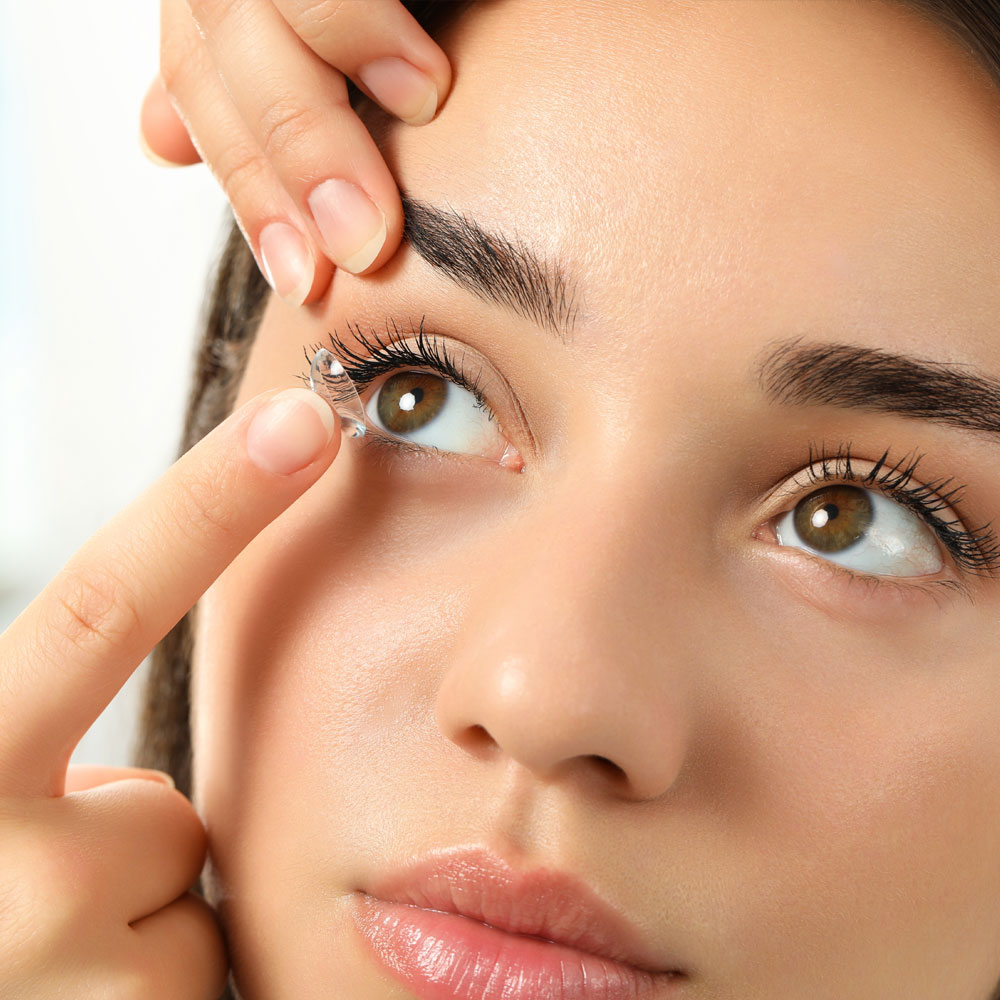
Your Edwardsville Eye Doctor
About Eigenbrodt Vision Center
Here at Eigenbrodt Vision Center, we are proud to serve Edwardsville, IL. Our team of professionals is dedicated to giving our patients the highest quality of optometry care. We offer a full range of optometry services so all of your family’s needs are met under one roof.
Our goal is for you to leave our office with a memorable and enjoyable experience, which is why our welcoming and compassionate staff will do everything they can to make you feel right at home.

Our Eye Care Services

Comprehensive Eye Exams
From updating your eyeglasses prescription to detection and treatment of eye diseases, comprehensive eye exams are important for continued visual health.

Contact Lens Exams
During a contact lens exam, your eye doctor will check if you are a good candidate for contacts and find the best type of contacts for your needs..

Dry Eyes
Do you have dry, itchy, gritty-feeling eyes? Dry eye syndrome is a very common condition. We offer dry eye treatments at our eye care clinic.
Children with myopia are at higher risk for potentially sight-threatening vision problems. Save your child’s vision with myopia management.
Eye diseases such as glaucoma and macular degeneration can cause severe loss of vision if not diagnosed and treated early. Our eye care team can help.
If cataracts go untreated, they can cause total blindness in the affected eye. We can help with co-management of your cataract removal surgery.
Over 50% of people living with glaucoma don’t know they have the disease as it shows no symptoms. Early detection and treatment can prevent blindness.
Macular degeneration can cause severe central vision loss if not detected and treated early on. We can help preserve your vision.
While vision can change drastically in the senior years, these changes shouldn't have to impair one's quality of life. The earlier these problems are detected and treated, the more likely proper eye care can help you retain good vision.
Eyeglasses & Frames
Designer Frames
Our extensive optical section offers a wide variety of eyeglass frames in every style, material & design. Come visit us today to see for yourself!
Our expert optical team can find just the right pair of glasses for you to be confident and look your best.
Lens coatings improve visual comfort, make it easier to clean your glasses and ensure your lenses last longer. Coatings include anti-scratch, anti-reflective, photochromatic and UV / blue light filters.
Contact Lenses
Contact Lens Fitting
We offer a wide range of contact lens options from dailies, monthly to multifocal contact lenses for crystal clear vision and superior comfort.
During a contact lens exam, your eye doctor will check if you are a good candidate for contacts and find the best type of contacts for your needs.

Save up to $250 on ACUVUE® OASYS 1-Day contact lenses
ACUVUE® OASYS 1-Day Extra New Wearer Reward Program Terms & Conditions
By participating in the MyACUVUE® Rewards Program and purchasing 6-month or annual supplies of ACUVUE® OASYS 1-Day with HydraLuxe® Technology
sphere or for ASTIGMATISM in-office at participating locations, from January 29, 2024 through June 30, 2024, you may also qualify for an additional $50.00
ACUVUE® Prepaid Mastercard®*. You may receive a promotional code. To submit for a reward online, visit www.myacuvuerewards.com and follow all entry
instructions found in the rewards terms and conditions at rewards.promo.acuvue.com/#/rewardsTerms. All rewards terms and conditions apply. Reward requests must be submitted online within sixty (60) days of purchase. Quantity requirements are based on purchase of lenses for two eyes.













